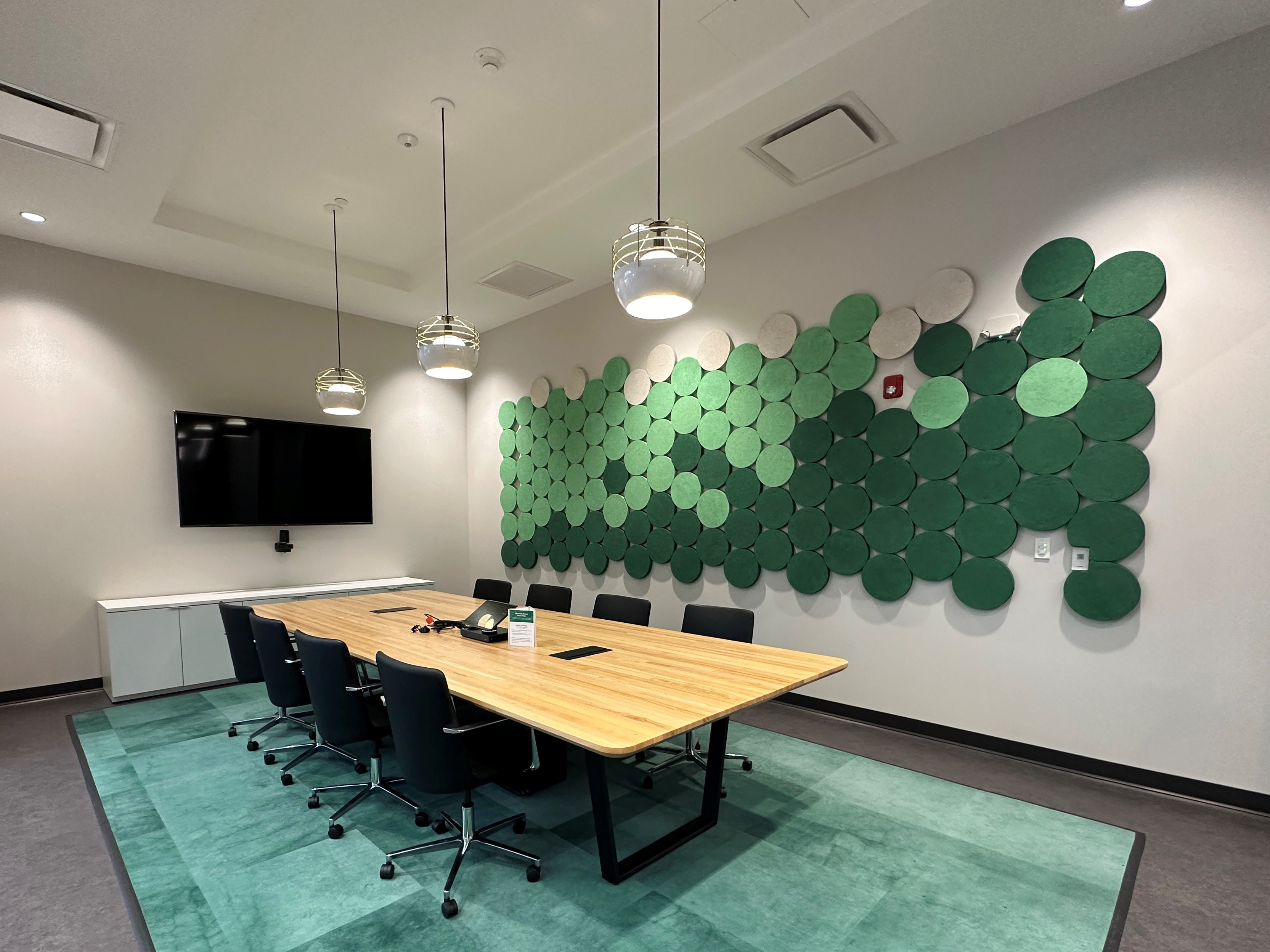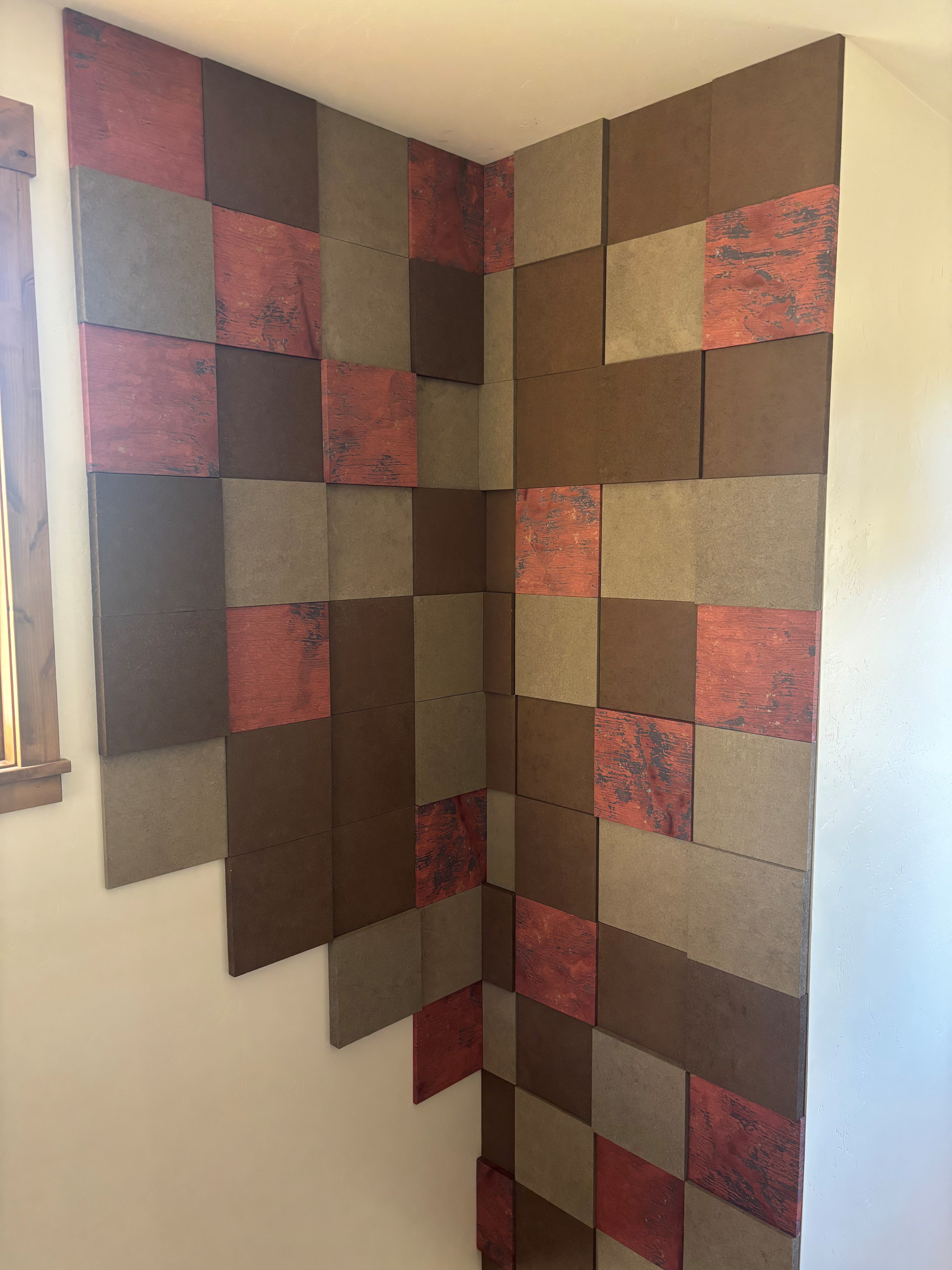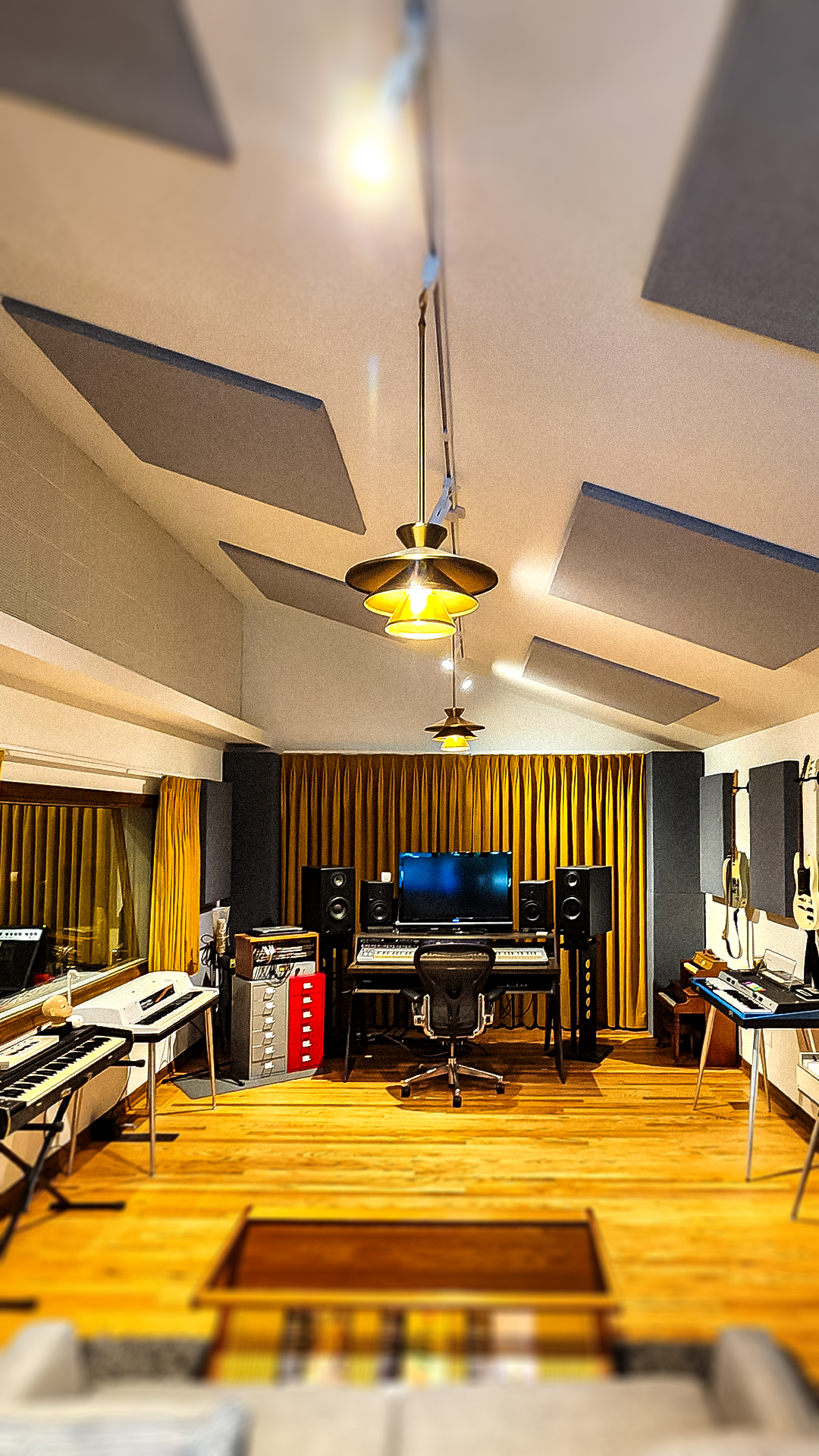How Do I Get Rid of the Echo in My Room?
- Sep 3, 2025

Have you ever walked into a room and discovered that every sound you make – from your footsteps to your voice – is resonating loudly around the space? Or maybe your co-workers have commented that it's difficult to hear you on Zoom meetings because of all the echo?
These are all too common acoustics problems, and they're caused by sound waves (from your footsteps, your voice, music you're listening to, etc.) reflecting off hard surfaces and then back to your ears.
Why Your Room Might Be Echoing:
- Hard Surfaces - Uncarpeted floors, bare walls, long tables, large windows: these are highly reflective surfaces. In fact, sound waves will bounce off anything made from concrete, glass, tile, metal, or hardwood. If your room has too much echo, it's probably because of a preponderance of these reflective materials.
- High Ceilings – Rooms with tall ceilings mean more space, and more space means more distance for sound to travel before it hits a surface. Once this sound does bounce off a hard surface, it creates a delayed reflection, which then bounces around the vaulted ceilings several more times until it finally dissipates.
- Empty / Lacking Furniture – Empty rooms have nothing to absorb sound waves. Without fabric-covered furniture, thick rugs, or heavy curtains to soak up echoes, they will continue to reflect and resonate off the hard, empty surfaces.
How to Fix Echo In Your Room:
- Add Sound-Absorbing Materials - These could be acoustic panels like the ones we make here at Audimute, but they could also be more everyday items like rugs, carpets, upholstered furniture, or drapes. Basically, anything of a porous nature (such as rugs, drapes, or Audimute fabric acoustic panels) will trap sound (like echoes) and keep it from re-entering the space.
- Add Bookshelves – Bookshelves are usually made of hard, reflective material, but because of their unique shapes full of nooks, crannies, and compartments, they scatter sound waves in different directions. This is called diffusion. Plus, books themselves also help to break up sound and provide some minimal sound absorption.
- Rearrange Furniture – Maybe your room has some furniture in it, but there's also lots of open areas or exposed bare walls where sound can bounce around freely. Consider moving sound-absorbing furniture such as sofas, armchairs, or couches to strategic locations where the acoustics are particularly bad.
You don't have to live a life full of echoes and reverberations! Any change – from adding a thick rug to hanging up a beautiful AcoustiWood® acoustic panel from Audimute – will make a substantial difference in reducing the echo in your room.











